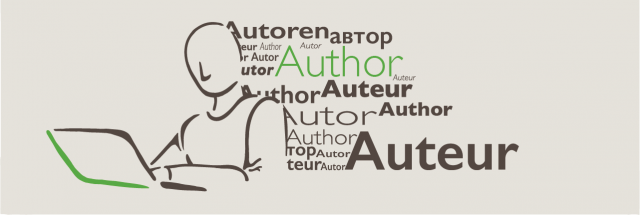The ICF took part in the Caux Conference for Business and Industry and the Renewal Arts Forum, held in Caux, Switzerland, in July 2004.
Caux Conference for Business and Industry - 16-21 July
This conference, which draws together business people from around the world, offers participants the opportunity to engage in honest conversation on topics relevant to business today. This year’s theme – “Globalization: Closing the Gaps” addressed the gaps that have emerged or been exacerbated by globalization and provided participants with an opportunity to begin to close them – personally and globally.
Henry Heald, ICF's Canada Representative, writes the following account:
CONSCIENCE TO CONSCIENCE
Conscience to conscience, face to face: that is what makes the International Communications Forum different from any other media organization, according to Jerry Lanson of Boston, USA.
 Lanson, who has worked for five newspapers, including the Christian Science Monitor, and taught journalism in seven colleges, is currently director of the journalism department at Emerson College in Boston. He met the ICF recently when he was invited to attend the launching of a US Chapter of the International Communications Forum (ICF).
Lanson, who has worked for five newspapers, including the Christian Science Monitor, and taught journalism in seven colleges, is currently director of the journalism department at Emerson College in Boston. He met the ICF recently when he was invited to attend the launching of a US Chapter of the International Communications Forum (ICF).
Lanson was one of three panelists at a plenary session on the media at the annual Caux Conference on Business and Industry at the Initiatives of Change conference centre at Caux, Switzerland. The conference focused on agriculture and the media in its efforts to come to grips with how to bridge the gaps in globalization.
"How can we bridge the gap between service and profit," was the theme tackled by the media panelists which included Bernard Margueritte, President of the ICF and a long-time French correspondent in Poland; and Jerzy Klosinski, editor of Tygodnik Solidarnose, the paper that carried the news of the Solidarity revolution that broke the back of communism in Poland.
The widening divide between media and the public is one issue Lanson addressed. Print media profits in the US average 19 per cent and TV 40 per cent, but owners are still cutting staff to make more money instead of improving performance, he said. Print media readership and television viewing is declining in the mainstream media, but increasing in the ethnic and alternate press and on the Internet.
He suggested that the public and journalists should buy stock in the media companies and attend shareholder meetings to influence management decisions.
Bernard Margueritte said that the most important role of the media is to create the basis for democracy. "That demands giving the public unbiased information."
Jerzy Klosinski said that the Solidarity paper was the first free media in Poland. Its circulation mushroomed to 500,000 during the big shipyard strike at Gdansk. Now that Poland has a free press and a stable government, readership has settled back to 20,000. The paper avoids sensationalism and is chiefly read by the elite. Margueritte interjected that it remains an influential voice in Polish affairs.
Bill Porter, the founder of the ICF, celebrated his 84th birthday during the conference. He welcomed the moves to establish chapters of the organization in the USA and in Poland. He said a sound legal structure was necessary so that the ICF could relate to funding agencies, but stressed that the primary goal of the Forum was to help journalists find honesty and transparency in their own lives and in their journalistic work.
He reminded the conference that the genesis of the ICF was the realization that the worldwide communications industry - the largest business in the world - was not playing a significant role in setting sound values for a sane, sustainable, global society.
Future forums are planned for France, Lebanon, the USA and Russia.
Polish delegates at the conference expressed the desire to have one in Gdansk, the Polish port where the Solidarity movement began.
Lech Walesa, the leader of the Solidarity Movement, who won the Nobel Peace Prize and served five years as president of the new free Poland, attended the Caux conference. In a brief comment to the media plenary, Walesa said, "the media can help people find their place in world development."
"I could never have reached where I am today if there was no free press or no honest journalists," he said. "I had to build a monopoly that could challenge the communist monopoly. I couldn't do it without a free press."
Asked how he dealt with fear, Walesa said that dealing with fear is like climbing a ladder. Each fear you face down is a step up the ladder.
"When you get to the top all that is left is the fear of God."
Jerry Lanson, head of the School of Journalism at Emerson College, Boston spoke on the topic of Closing The Gaps: Focus On The Media – click here to read a summary of his contribution.
Click here to read Bernard Margueritte's contribution (in French).
Renewal Arts Forum - 24-30 July
This, the third Renewal Arts Forum, was on the theme “Transforming the Way Things Are”. The Forum was an opportunity to meet with artists and lovers of art from around the world, from different disciplines, cultures and beliefs, who feel that art has an essential place in society and can be a means of transforming the world.
The ICF supported the programme throughout the week, which was attended by the ICF’s Vice-President - Entertainment, Jara Moserova, together with the President and Founder President as well as ICF supporters Jean-Jacques Odier and Chris Channer.
Click here to read a moving statement of art’s transforming power,delivered by veteran playwright Hugh Williams.

